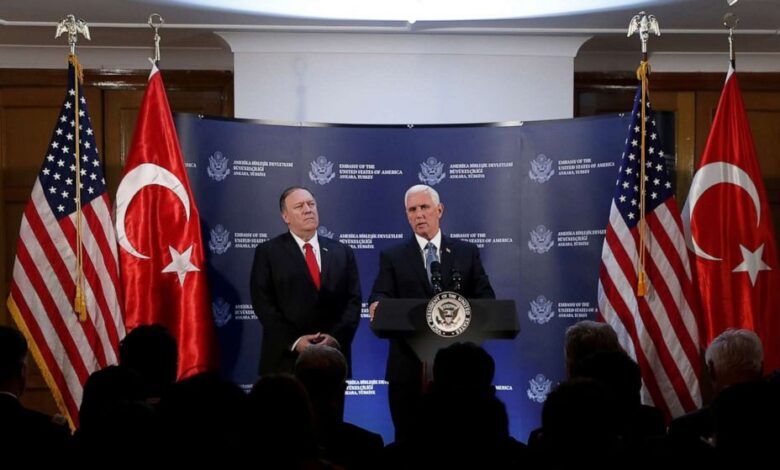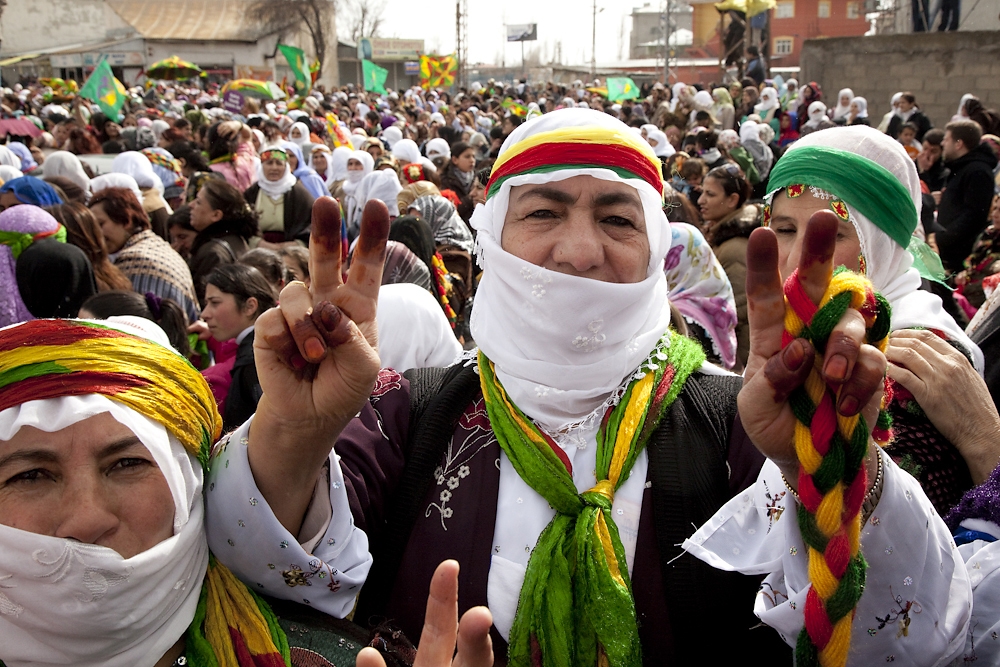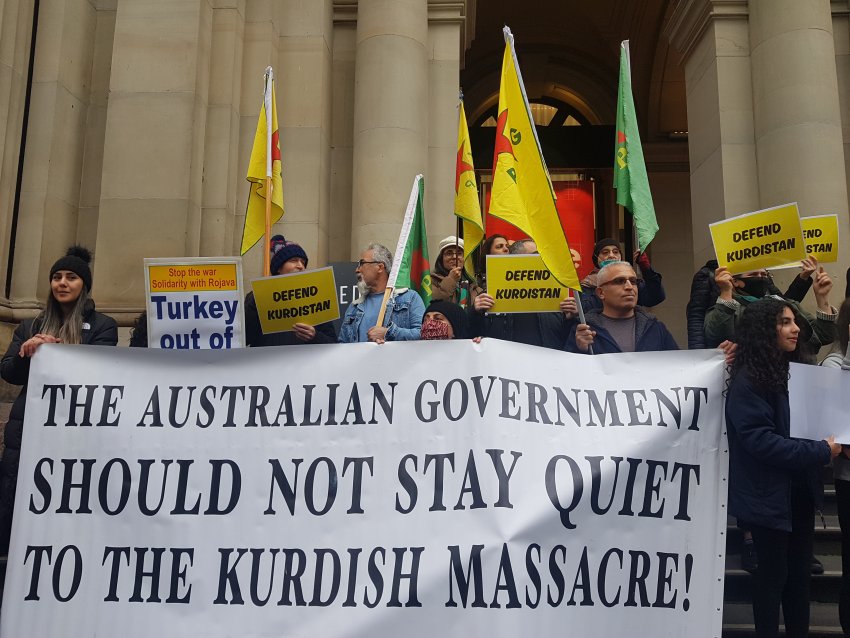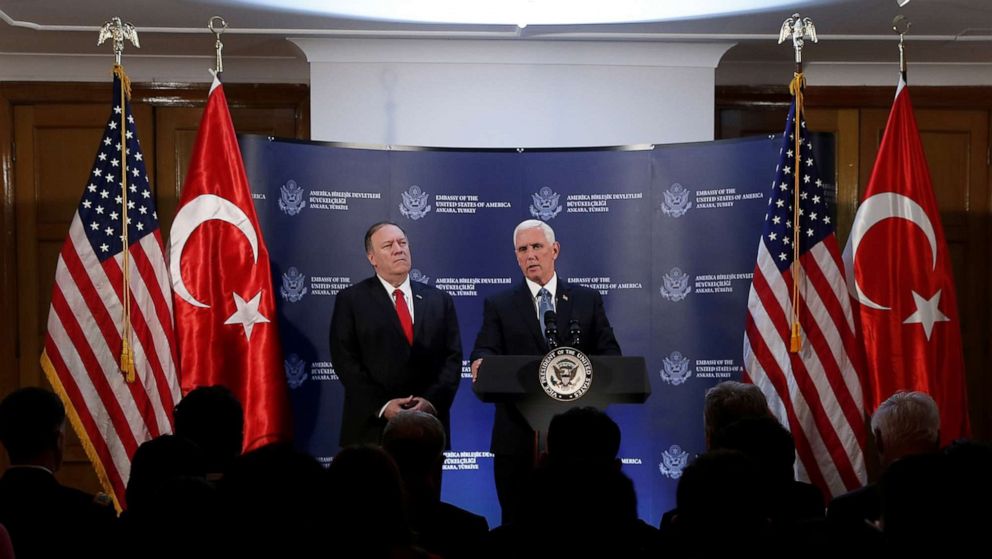
Turkey Could Strike Historic Peace Deal With Kurds
Turkey could soon strike a historic peace deal with the Kurds – a monumental shift after decades of conflict. This potential breakthrough has the world watching, as the implications for regional stability and the lives of millions are immense. For years, the relationship between Turkey and its Kurdish population has been marked by violence, political maneuvering, and a deep-seated mistrust.
But whispers of a potential peace agreement are swirling, raising hopes for a new chapter in this complex history. This post delves into the potential deal, examining the historical context, the key players, the obstacles, and the potential rewards of lasting peace.
Understanding the nuances of this situation requires looking back at decades of conflict, analyzing the various Kurdish groups and their aspirations, and considering the intricate political landscape both within Turkey and in the broader Middle East. The potential for a deal rests on a delicate balance of concessions, compromises, and a willingness to move beyond the entrenched positions of the past.
The road ahead won’t be easy, but the possibility of peace offers a glimmer of hope that’s too significant to ignore.
Historical Context of Turkey-Kurdish Relations

The relationship between Turkey and the Kurds is a complex and often fraught one, shaped by centuries of conflict, political maneuvering, and shifting national identities. Understanding this relationship requires examining the historical events that have fueled mistrust and violence, as well as the diverse aspirations of the various Kurdish groups themselves. The current potential for peace is a significant development, but one that must be understood within this long and often turbulent history.The deep roots of this conflict lie in the collapse of the Ottoman Empire after World War I.
The subsequent redrawing of the Middle East’s borders, largely dictated by European powers, left a significant Kurdish population scattered across several newly formed nation-states, including Turkey, Iraq, Syria, and Iran. This division prevented the Kurds from establishing their own independent state, a long-held aspiration for many. The Turkish government, concerned about maintaining its territorial integrity and national unity, adopted a policy of assimilation, suppressing Kurdish language, culture, and political expression.
This suppression has been a constant source of tension and conflict throughout the 20th and 21st centuries.
The Diversity of Kurdish Groups and Their Political Aspirations
The Kurdish population is not a monolithic entity. Various groups exist, each with its own political ideology and approach to achieving their goals. Some advocate for complete independence, envisioning a unified Kurdistan encompassing the Kurdish regions of Turkey, Iraq, Syria, and Iran. Others seek greater autonomy within the existing nation-states, focusing on cultural rights and political representation.
Still others prioritize peaceful coexistence and integration within their respective countries. These differing viewpoints have often led to internal divisions within the Kurdish movement, hindering their collective efforts and providing an advantage to the governments they oppose. The PKK (Kurdistan Workers’ Party), for example, has pursued an armed struggle for Kurdish autonomy in Turkey, while other groups have adopted more peaceful, political strategies.
The potential for a historic peace deal between Turkey and the Kurds is huge, potentially reshaping the geopolitical landscape of the region. This kind of stability could have ripple effects globally, impacting everything from refugee flows to regional security. It’s interesting to consider this in light of the current US border crisis, where, as reported in this article, acting DHS Secretary Mcaleenan’s new immigration policies are key to addressing the border crisis , and a stable Middle East would certainly alleviate some pressure points.
Ultimately, a peaceful resolution in Turkey would benefit everyone involved.
The internal diversity within the Kurdish movement makes a unified approach to peace negotiations exceptionally challenging.
The potential for a historic peace deal between Turkey and the Kurds is huge, potentially reshaping the entire region. It’s a complex situation, of course, and the international implications are massive, especially considering the ongoing political drama; for example, check out this article on how biden responds to trumps declassification order claims , which highlights the kind of global power plays that could impact such a delicate peace process.
Ultimately, a resolution would be a significant step towards stability in a volatile area.
Past Attempts at Peace Negotiations and Their Outcomes
There have been several attempts at peace negotiations between Turkey and various Kurdish groups throughout history, with varying degrees of success. These negotiations have often been hampered by a lack of trust, differing agendas, and the involvement of external actors. Some attempts have resulted in temporary ceasefires or limited autonomy agreements, but these have often been short-lived, giving way to renewed conflict.
The potential for a historic peace deal between Turkey and the Kurds is genuinely exciting, offering a chance to finally address decades of conflict. It makes you think about the devastating impact of past violence, like what’s described in this article about the six day siege that put terror on television , and how crucial lasting peace is.
Hopefully, this potential deal signifies a true turning point, leading to a more stable and peaceful future for the region.
The most significant example is the peace process initiated in 2012-2015, which ended in a collapse and the resumption of hostilities. The failure of these past attempts highlights the immense challenges involved in reaching a lasting peace agreement, underscoring the need for a comprehensive and inclusive approach that addresses the root causes of the conflict.
Timeline of Major Conflicts and Periods of Relative Peace
A chronological overview of major events helps illustrate the cyclical nature of the conflict:
| Year(s) | Event | Description |
|---|---|---|
| 1920s-1930s | Early Suppression of Kurdish Identity | The Turkish Republic actively suppressed Kurdish language and culture. |
| 1970s-Present | PKK Insurgency | The Kurdistan Workers’ Party (PKK) launched an armed struggle for Kurdish autonomy in Turkey. |
| 1980s-1990s | Heightened Conflict | The Turkish military conducted large-scale operations against the PKK, leading to significant human rights abuses. |
| 2012-2015 | Peace Process | A period of negotiations between the Turkish government and the PKK, which ultimately collapsed. |
| 2015-Present | Renewed Conflict | Renewed clashes between the Turkish military and the PKK, as well as other Kurdish groups. |
The ongoing nature of the conflict underscores the need for a durable and comprehensive solution that addresses the underlying political, social, and economic grievances that fuel the conflict. The potential for a historic peace deal, therefore, represents a crucial moment in the long and complex history of Turkey-Kurdish relations.
Current Political Landscape and Actors Involved

The potential for a historic peace deal between Turkey and Kurdish groups is a complex issue deeply intertwined with the current political landscape of both sides. Numerous actors, with varying agendas and levels of influence, are involved in the ongoing discussions, making the path to a lasting agreement fraught with challenges. Understanding these actors and their motivations is crucial to analyzing the potential success or failure of any peace negotiations.The internal political dynamics within Turkey and Kurdish regions significantly impact the negotiation process.
Internal divisions within both sides, competing political interests, and the influence of external actors all contribute to a volatile and unpredictable situation. The strength of each actor’s position, their willingness to compromise, and the level of public support they enjoy will determine the eventual outcome.
Key Political Figures and Organizations
Several key players dominate the current political landscape, each with distinct goals and objectives. These actors operate within a complex web of alliances and rivalries, influencing the trajectory of peace negotiations. Their stated goals often clash, highlighting the difficulties in reaching a consensus.
Comparison of Goals and Objectives, Turkey could soon strike a historic peace deal with the kurds
A table summarizing the key players and their respective stances on a peace deal offers a clear overview of the challenges ahead. The positions presented here represent a snapshot in time and are subject to change depending on evolving political circumstances.
| Actor | Stance on Peace Deal | Primary Goals | Potential Obstacles |
|---|---|---|---|
| Recep Tayyip Erdoğan (President of Turkey) | Cautiously optimistic, but prioritizes national security and territorial integrity. | Elimination of the PKK threat, preservation of Turkish sovereignty, and maintaining political stability. | Internal political opposition, concerns about Kurdish autonomy, and pressure from nationalist factions. |
| People’s Democratic Party (HDP) | Strong support for peace and Kurdish rights, advocating for self-determination within a democratic framework. | Increased Kurdish autonomy, cultural rights, and political representation. Ending the conflict through peaceful means. | Internal divisions within the party, pressure from the Turkish government, and the challenge of representing diverse Kurdish interests. |
| Kurdistan Workers’ Party (PKK) | Their position is less clear, often fluctuating between calls for a ceasefire and renewed armed struggle. | Increased Kurdish autonomy, possibly even independence in the long term. | Internal divisions, Turkish military operations, and the challenge of achieving a lasting peace agreement that satisfies their demands. |
| United States and European Union | Support a peaceful resolution, urging dialogue and compromise from all parties. | Regional stability, counter-terrorism efforts, and promotion of human rights. | Limited influence on internal Turkish politics, competing interests with other regional actors, and the complexity of the conflict. |
Internal Political Dynamics
The internal political dynamics within Turkey and Kurdish regions are crucial in shaping the negotiations. In Turkey, President Erdoğan’s ruling Justice and Development Party (AKP) faces opposition from nationalist parties who are wary of concessions to Kurdish groups. Within Kurdish regions, there are diverse opinions regarding the best approach to peace, ranging from those advocating for full autonomy to those prioritizing a peaceful coexistence within the Turkish state.
These internal divisions can significantly impact the ability of each side to reach a unified position and negotiate effectively. The influence of external actors, such as the United States and the European Union, also plays a significant role, adding another layer of complexity to the negotiations. Their involvement, while aimed at promoting peace, can also create further tensions and complicate the process.
Obstacles and Challenges to Reaching a Deal: Turkey Could Soon Strike A Historic Peace Deal With The Kurds

A lasting peace agreement between Turkey and the Kurds faces numerous hurdles, deeply rooted in historical grievances, complex political dynamics, and the influence of external actors. Successfully navigating these obstacles requires a delicate balance of compromise, trust-building, and a commitment from all parties involved to prioritize peace over short-term political gains. The path to a lasting agreement is fraught with potential pitfalls, and even if a deal is reached, its implementation presents its own set of significant challenges.
External Actors and Regional Conflicts
The influence of external actors significantly complicates the Turkey-Kurdish peace process. Neighboring countries with their own interests in the region, such as Syria and Iraq, can inadvertently or deliberately destabilize the process. For example, the ongoing Syrian civil war and the presence of various armed groups, including Kurdish factions affiliated with the PKK, create a volatile environment that can easily spill over into Turkey.
Furthermore, the involvement of international powers with differing geopolitical agendas can further complicate matters, with some potentially supporting certain factions or hindering progress for their own strategic reasons. This external interference often manifests as financial support, military training, or political pressure exerted on either Turkey or Kurdish groups, creating a complex web of alliances and rivalries that can undermine peace negotiations.
Internal Opposition within Turkey and Kurdish Groups
Reaching a consensus within both Turkey and Kurdish society is a monumental task. Within Turkey, there exists a significant segment of the population deeply skeptical of any concessions made to the Kurds, fueled by historical narratives and security concerns. Hardline nationalist groups, for example, might actively work to undermine any peace deal, potentially resorting to violence or political maneuvering to derail the process.
Similarly, a unified Kurdish stance is far from guaranteed. Different Kurdish groups, with varying political ideologies and priorities, may have differing expectations and demands, making it difficult to forge a united front in negotiations. Internal divisions and power struggles within Kurdish groups can lead to disagreements on strategy and acceptance of any potential agreement.
Challenges in Implementing a Peace Agreement
Even if a peace agreement is signed, its successful implementation presents a significant challenge. This includes establishing mechanisms for monitoring and enforcing the terms of the agreement, addressing the concerns of various stakeholders, and providing for effective reconciliation and rehabilitation programs. Building trust and overcoming decades of mutual distrust and hostility is a long and arduous process. Moreover, the practicalities of disarmament, demobilization, and reintegration (DDR) of Kurdish fighters pose significant logistical and political hurdles.
The successful integration of former combatants back into civilian life, including providing them with economic opportunities and addressing potential grievances, is crucial to long-term stability but presents a considerable challenge. Failure to address these practical issues could lead to renewed conflict.
Potential Risks Associated with a Peace Agreement
The potential risks associated with a peace agreement are considerable. A poorly negotiated or implemented agreement could lead to a renewed cycle of violence, as different groups might feel their concerns were not adequately addressed. The lack of trust between the parties involved could hinder the effective implementation of any deal, leading to a breakdown of the peace process.
Furthermore, the risk of backsliding on commitments, especially regarding the rights and autonomy of Kurdish communities, remains a real possibility. This could lead to a resurgence of conflict and potentially greater instability in the region. For example, past attempts at reconciliation have often been short-lived due to a lack of political will or the resurgence of extremist elements on both sides.
The potential for a peace deal between Turkey and the Kurds is a game-changer. While significant obstacles remain, the possibility of a resolution after decades of conflict offers a beacon of hope for a more peaceful and prosperous region. The success of any agreement will hinge on the commitment of all parties involved, the willingness to compromise, and the support of the international community.
This is not simply a regional issue; it has global implications, affecting stability, human rights, and economic development across the Middle East. The coming months will be critical in determining whether this fragile hope blossoms into a lasting peace or fades into another chapter of conflict.

